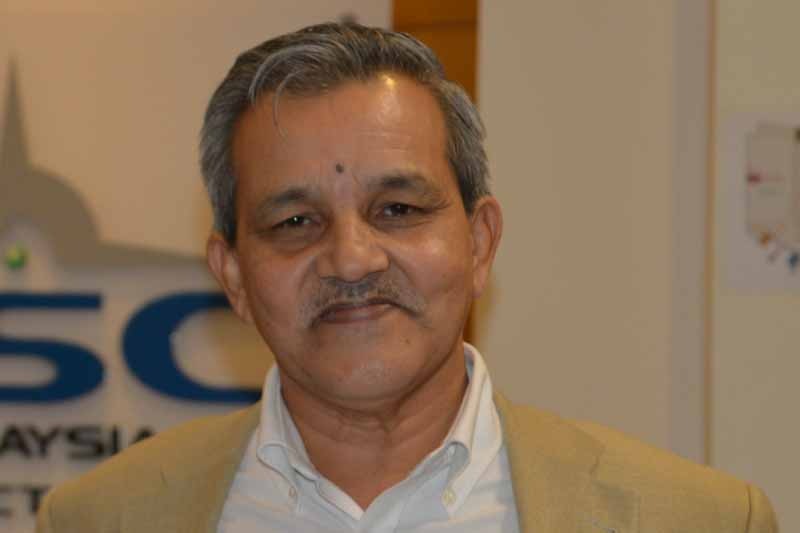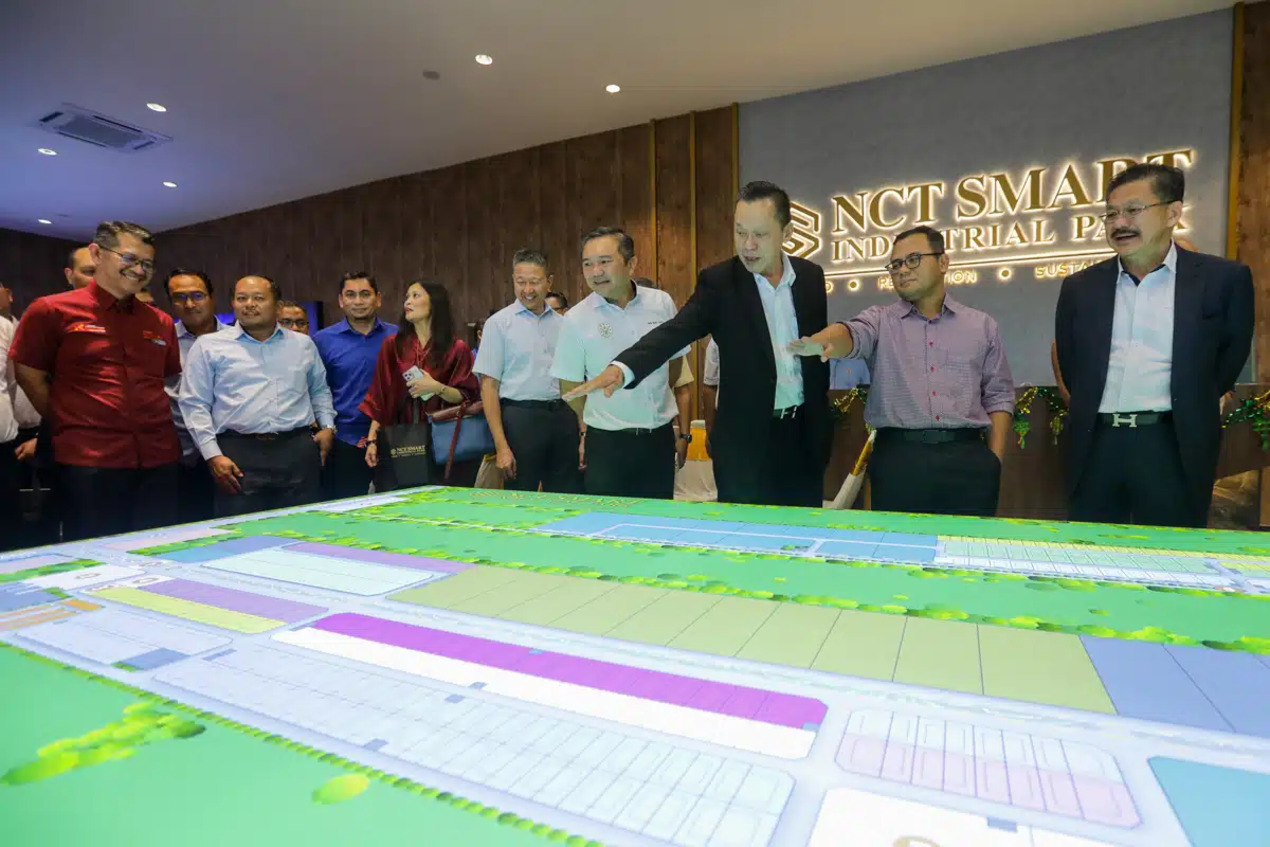
In a recent trip to Malaysia I had the chance to catch up with Mr Niran Noor, Vice-President of Stakeholder Engagement, at the offices of the Multimedia Development Corporation (MDeC).
MDeC, incorporated 19 years ago, their role has been to develop the Multimedia Super Corridor Malaysia. Creating breakthrough standards for multimedia and being an adviser to the Malaysian Government on Legislation and policies.
In 1996, the Multimedia Super Corridor began to focus on creating an environment that is conducive to nurturing small and medium enterprises (SMEs). Their goal was to become a world-class business, attracting participation from global ICT companies to invest and develop cutting edge digital solutions in Malaysia. Since then, the Malaysian ICT industry has enhanced technology adoption, making strides to increase the impact and footprint of ICT for the nation.
Their vision is to be leaders in the information age and spearhead the nation’s digital economy.
In our discussions, we covered several topics of interest. A large part of the discussion was around Digital Transformation and how Malaysia is addressing this challenge head on. We covered the mandate of MDeC and its role as a thought leader to government. Reflecting on how to better serve the Malaysian community as a whole within a digital world.
Creating an international Advisory Panel has been a great way to address many of the issues facing both Malaysia and the world. First consisting of recognised global IT heads. The advisory panel has evolved into a broader group of both international advisers, including the ICT leaders, further expanding it to include emissions, NGO’s and community leaders. These advisors provide many different perspectives within the digital economy.
MDeC has led many initiatives in exploring opportunities for Malaysia. Once an idea has past incubation, it's then direct it to the natural owners within government. Some of these initiatives are, eGov, Smart Schools, Smart Cards to name but a few.
In 2011, MDeC tabled at the Implementation Council Meeting (IMC) which was chaired by the Prime Minister, Mr Datuk Seri Najib Tun Razak. Mr Noor said “We told the Prime Minister the country needed a digital economy framework”. The idea was embraced and MDeC was given the mandate to visualise and drive the Digital Malaysia Framework. Fostering an ecosystem driven by ICT in targeted areas of the economy, governance and social interaction being high on that list. Setting up a climate of innovation, investment and growth of talent.
October of that year Mr Noor stated, “When we presented it to the Government, we called the programme Digital Nation”. The Prime Minister again mandated MDeC to drive the Digital Nation, using the digital economy framework. Providing MDeC another initiative to drive on top of their existing charge of the Multimedia Super Corridor.
The Journey Continues –
MDeC started to drive the Digital Nation initiative, using the digital economy framework. This was broken down into three areas -government, business and the citizen or community. MDeC predominantly has taken care of the Digital Transformation. In 2014, MDeC presented its case to government for a change that was to have government lead that transformation.
Under the governance proposed a digital technical working group was created. Consisting of people from MDeC and the Malaysian Administrative

Modernisation and Management Planning Unit (MAMPU). MAMPU is responsible for the modernising and reforming the public sector in Malaysia. That is around Administrative reform, MAMPU is placed under the Prime Minister's Department, being setup in 1977. Its main objective and functions are to, conduct research in public administration, to conduct research around human resources, to develop policy for the modernisation of the public sector, reporting to cabinet and parliament.
MDeC has been working to improve Malaysia’s standing in the world ranking of e-economies. In the early days of these rankings Malaysia was in the high twenties, today they sit at 52.
MDeC, being an independent body, was entrusted with doing the on-line assessment of government sites. MDeC assessed government on-line services to reach a baseline measure.
Based on all agencies that had official sites, and were registered with MAMPU, MDeC then assess them. Mr Noor pointed out, “We determined that 80-90% were on-line. 80% of the 1400 sites were three stars or above”. Based on our simple metrics, one being on-line and two meeting the minimum standard of government services. This rating though was from the perspective of a supplier.
Then last year it was said the citizen does not care about the star rating it was all about experience. As part of the process of change,
MDeC proposed to move to a citizen centric perspective, one of experience with ‘online’ government services. MDeC then changed its approach and started to look at the sites from the citizen’s user experience. Mr Noon said, “We are going to stop assessing from the suppliers side, we are going to get the citizen now to tell us if you are any good or not”. The government agreed with MDeC. MDeC was charged to baseline the citizen’s perspective, then check against that baseline.
In building the case for change there was some interesting data. MDeC has decided to use the UN e-Government measures. As part of addressing the benchmarking by the UN, MDeC is working to a plan by 2020 to move from 52 into the teens.
To achieve that result will need a leap in what Malaysian government is doing now. The UN base their rankings on three indexes. These being, On-line Services Index (OSI), Telecommunication Infrastructure Index (TII) and the Human Capital Indexes (HCI). Two of these indexes, TII and HCI are outside MDeC control. But the On-line Services Index (OSI) is not. The TII and HCI are based on figures from other sources. If these organisations don’t have the correct figures then it does not reflect the true situation of the country. Reporting on these figures need to be punctual, supplying the correct figure for the UN report.
The UN produces the E-Gov report every two years, the information being gathered from May to June in the preceding year. The next report is due to be released 2016. MDeC is focusing on the criteria needed for assessing OSI. Working on the quick wins, to be followed by the remaining items.
Mr Noor said, “Overall we are 52 but on the OSI we are 32, MDeC is working to raise this so Malaysia moves into the top 15. We can’t depend on a step change approach, we have to make a leap if we are to get ahead”. There is a strong need to transforms, this is why MDeC called their plan, ‘Digital Government Transformation’.
The goal is to, as Mr Noor pointed out, “By 2018 whatever it is we want get done, must be done. So we are in a hurry to do all that”. The plan is for the 2020 E-Gov Report. To achieve that result everything needs to be ready in 2019. To do this, MDeC needs to complete all the transformational work by 2018.
The Future – Addressing the Mind and Skills Shift – User Experience
MDeC has customised the seven pillars of user expectation built from the American Consumer Satisfaction Index. The goal being to have one location online for citizens to deal with when they need to transact with government.
MDeC has been using the UK version of a one-window to access government as an example. The UK one page approach was developed by the agency, Government Digital Service, UK. This is an independent agency assessing the UK government sites, providing the direction and ideas for change.
Another example sighted by Mr Noor was the work done in Australia with their MyGov programme. France, who is ranked 4th in the world, Bahrain who has risen from 36th to 18th in the last ranking. These two countries are especially interesting, they would like to understand what and how they achieve their results, learning from their experience.
Fast Track Programme
MDeC is working on a fast track programme. This is a programme where they have through a selection panel pick 15 of the most promising delegates within the Malaysian Government. The programme runs for 12 months in which the delegate are needed to build one mobile application for their agencies and 3 group applications. These applications or apps are to meet the world benchmark standards. A group we hope led by the Prime Minister and respective ministers will pick the top app.
This programme is a kick-start to the Malaysia mobile digital journey. “We need to create an environment, or framework to return these candidates, so they can become the champions of tomorrow”, said Mr Noor.
Working toward that single window idea to transact with government. We are looking to build a similar structure to what the UK has done with their Digital Service agency. That agency is made up of 60% private sector and 40% public sector. MDeC believe that this will help with the transformation the Malaysian government needs to do.
Aligning both commercial and government in a new working relationship. “We know the expectation, we then set that expectation to get the ball rolling, but the discovery stage is important”, said Mr Noor.
The important part is sustainable innovation, being creative and producing the results needed to meet the needs of our citizens in this Digital World. It needs to be continually improving, sustainability needs to be more than just bright ideas. Past experiences has shown that bright ideas fail when they are not supported to become self-sustainable.
We are still playing catch up, building partnerships within industry and government is paramount. Mr Noor suggested, “We are looking to changing the culture to bring in this Digital Transformation”.




















